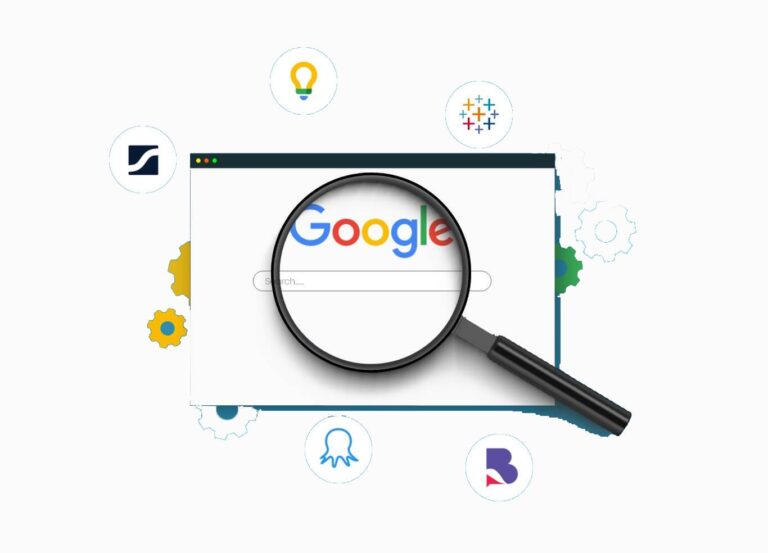The Complete Internet Researcher's Guide to Key Activities and Best Practices
Internet research, in today’s computer generation, is a very great area of knowledge acquisition for both the personal and business sectors because it makes it possible for any individual or a business to access vast amounts of information at any given time and at any location where they may feel it necessary, saving that much time they use in deciding; to improve their decision-making; and to stimulate new ideas. This paper focuses on the key activities of internet-based research that involve searching for information, finding sources, extracting or gathering data, presentation, drawing or meaning from the outcome, or organizing and presenting.
Understanding Internet Research
Internet research is the process of getting, processing, and making sense of data through the application of online tools and resources. It aims to access the most accurate, relevant, and up-to-date information in answering questions or supporting arguments or making informed decisions. As digital land expands further, learning internet-based research techniques is necessary for both students, professionals, and entrepreneurs.

Key Activities of Internet-Based Research
1. Information Search
The foundation of internet research is located and accessed appropriate information. This could be made less difficult by the following:
Defining clear objectives: Begin with a clear question or purpose to be your guide for your search efforts.
You can use one of the more popular search engines: Google, Bing, or DuckDuckGo, but depending on the topic of your research, you may need to choose a more specialized search engine: PubMed for medical topics, JSTOR for academic journals, etc.
Utilizing Advanced Searching Techniques: Use of Boolean operators, such as AND, OR, NOT; quotation marks for word phrases; search filters-like date range or file-type filters-to better narrow search results to desired results.
Look beyond the first results page-most valuable, unknown information lies outside those few front-page references.
2. Analysis of Sources
Not everything that appears online is true or trustable; source analysis protects the gathering of data, ensuring relevancy and veracity in the data received.
Check the Author’s Credentials: Check qualifications, affiliations, or expertise relevant to the subject matter.
Assess Publication Quality: Generally, credible information comes from peer-reviewed journals, government websites, and reputable organizations.
Be watchful for material that sounds extremely advertising-oriented or opinion-related, with little supporting evidence.
Currency: Make sure it’s up-to-date information especially if in the subject matter information changes very quickly. Think technology or medicine for instance.
Check the Facts: Corroborate your sources using other reputable ones.
3. Data Collection
Effective data collection is structured and conducted in an ethical manner as outlined below
Prepare Your Search: Use digital tools, like spreadsheets or note-taking apps, to capture key points, links, and citations.
Use Digital Tools: Bookmarks like Pocket, clipping the web with Evernote, and citation managers such as Zotero really can help with data collection.
Observe Copyright and Intellectual Property: Ensure not to violate copyright, and give due credit to the sourced material.
4. Interpretation of Results
After gathering data, its interpretation actually is required to draw meaningful conclusions:
Identify Patterns and Trends: Look for repeating themes or insights in the data.
Overview of context: Do not take it in the wrong direction based on just any information.
Apply critical thinking: Question assumptions and think about gaps. Always analyze it against different explanations for the finding of data.
Use statistical tools. Excel, SPSS, Google sheets, etc.
5. Organization of Presentation of Results
The last step would be the presentation of research findings organized and impactful.
- Outline Key Points: Organize your findings in a logical manner, with an introduction, main points, and finally actionable insights.
- Visualize Data: Use charts, graphs, and infographics in order to make complex data easy to understand and of interest to read.
- Clearly and Concisely Worded: Use simple words without jargon so the audience understands key messages
- Use the appropriate format: the presentation would vary depending on the audience: detailed reports in formal and slides or videos for informal ones.
- Correct citation: High standards of citation using APA, MLA, Chicago, etc., will provide credibility and avoid plagiarism.

Common Challenges:
- Information Overload: Too much information available online might be very confusing.
- Misinformation: Sometimes it is tough to identify between the right and the wrong source.
- Time Boundaries: The balance of both depth and speed works quite efficiently in research.
- Technical Challenges: Not that the users may be aware of these advanced searching techniques or digital tool.
How to overcome the challenges:
- Fix specific and measurable objectives and deadlines while researching.
- Using the right aggregator or directory having quality resources.
- Keeping up with the trends of digital research tools and how it is developing into the research.
- Breaks that will prevent fatigue and keeping alert throughout.
As technology becomes the engine for progress, Internet research is becoming more integral to our lives. New inventions like search engines powered by AI and data visualization portals make working much more efficient and accurate, but all of that research will depend on knowing proper evaluation, correct usage, and proper dissemination.
Internet-based research is an important ability that allows you to base your decisions, build logical arguments, and solve some complex problems. Building this ability to search, judge, gather, interpret, and present information will certainly make you confident in all your explorations of the digital world in getting whatever you want. With dedication and perseverance, anyone will be able to be an outstanding internet researcher since anyone could take advantage of the plentiful resources that are found over the internet.
